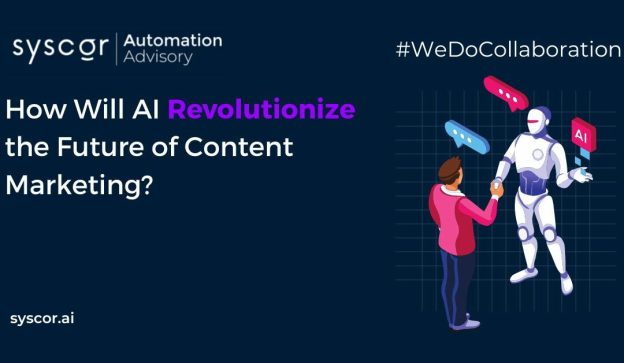Have you ever wondered how content marketing will adapt to the increasing pressure brought on by artificial intelligence (AI)? With AI technology becoming more advanced and prevalent, the content marketing landscape is bound to change. In this article, we will explore the potential ways in which AI will impact content marketing strategies and how marketers can leverage AI to their advantage.
The Rise of AI in Content Marketing
As technology continues to advance, the role of Artificial Intelligence (AI) in various industries is becoming increasingly prevalent. One area where AI is making a significant impact is content marketing. AI-powered tools and techniques are revolutionizing content creation, strategy, distribution, and optimization, leading to more efficient and effective marketing campaigns. In this article, we will explore the rise of AI in content marketing and how it is transforming the industry.
AI-powered Content Creation
One of the most remarkable applications of AI in content marketing is automated writing. AI-powered tools can generate high-quality, plagiarism-free content within seconds, which can significantly reduce the time and effort required for content creation. These tools use Natural Language Processing (NLP) and machine learning algorithms to analyze and understand vast amounts of text, enabling them to generate coherent and engaging content. With AI-powered content creation, marketers can produce a higher volume of content, keeping up with the ever-increasing demand for fresh and relevant material.
Furthermore, AI-powered tools also facilitate personalized content generation. By leveraging data on user preferences, behaviors, and demographics, these tools can tailor content to suit individual users’ needs. Personalization plays a crucial role in content marketing, as it allows marketers to connect with their audience on a deeper level, increasing engagement and conversions. With AI, personalized content can be delivered at scale, enabling content marketers to reach a broader audience while maintaining relevance and specificity.
AI also enhances creativity and collaboration in content creation. AI-driven tools can provide content suggestions, generate alternative ideas, and even analyze existing content to identify gaps or areas for improvement. This collaborative approach allows content creators to harness the power of AI while retaining their creative edge. By augmenting human creativity with AI-driven insights, content marketers can produce more captivating and compelling content that resonates with their target audience.
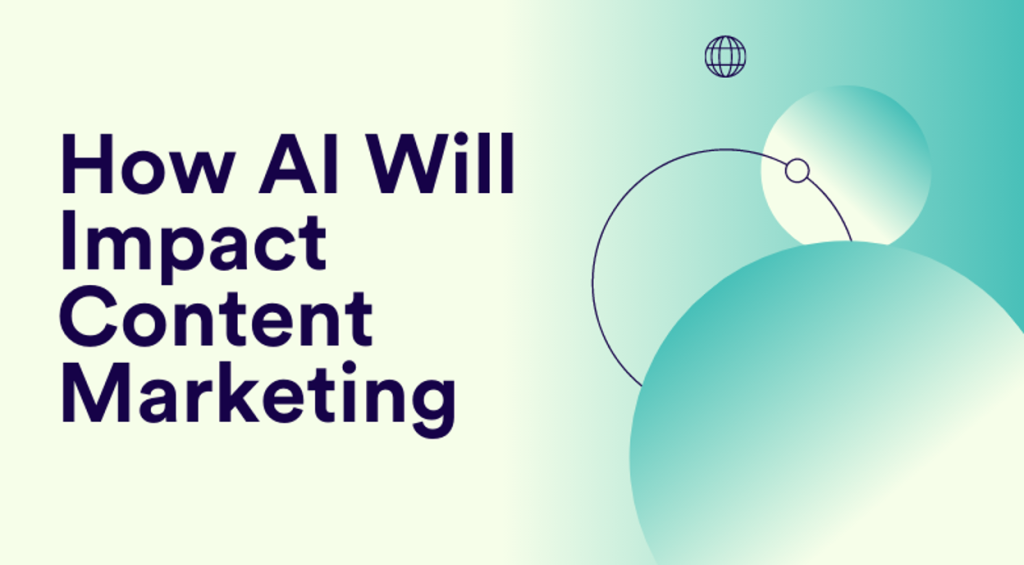
This image is property of contentmarketinginstitute.com.
AI-driven Content Strategy
In addition to content creation, AI is revolutionizing content strategy and planning. AI-powered tools can analyze demographic and behavioral data to gain insights into consumers’ preferences, interests, and needs. By understanding the target audience better, marketers can create content that aligns with their desires, increasing the chances of engagement and conversions. AI also enables marketers to identify emerging trends and topics, ensuring that their content remains relevant and up-to-date.
Competitive landscape research is another area where AI proves valuable. AI-driven tools can analyze competitors’ content strategies, identify their strengths and weaknesses, and extract insights to inform their own strategy. By understanding what works for competitors, content marketers can refine their approach and develop unique value propositions that set them apart in the market.
Predictive content analytics is yet another invaluable application of AI in content strategy. By leveraging historical data, AI tools can predict the performance of different content pieces, helping marketers prioritize their efforts and resources. This allows content marketers to optimize their content strategy and focus on creating high-performing content that resonates with their audience.
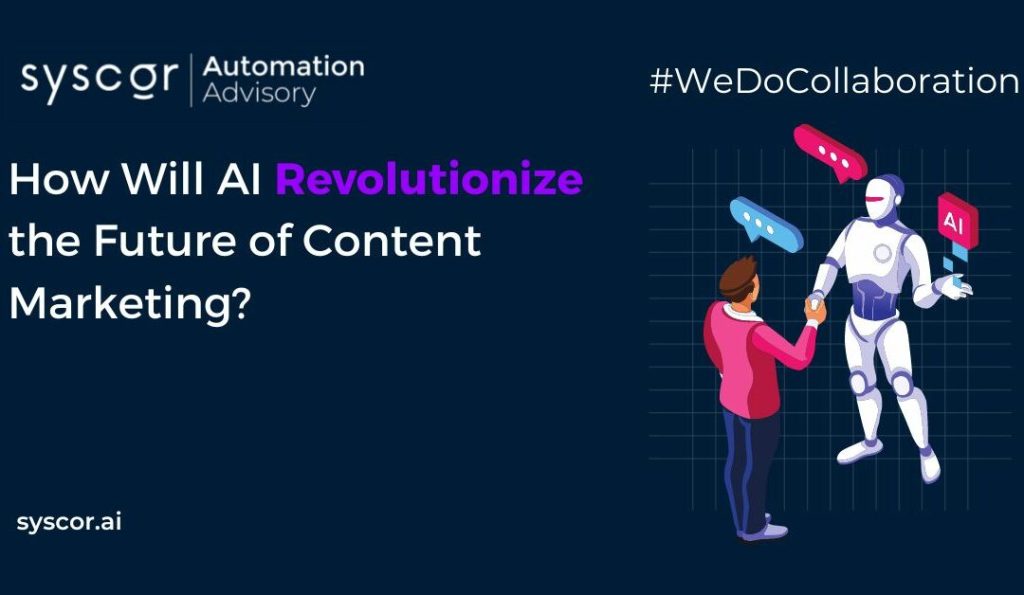
This image is property of sp-ao.shortpixel.ai.
AI-based Content Optimization
Once content is created and a strategy is in place, AI can play a crucial role in optimizing content for better performance. One area where AI excels in content optimization is automated SEO and keyword research. AI tools can analyze vast amounts of data to identify the most relevant keywords, assisting content marketers in optimizing their content for improved search engine rankings. By leveraging AI-based SEO techniques, content marketers can increase their organic traffic, reach, and visibility.
Data-driven performance enhancements are another significant aspect of content optimization. AI tools can analyze engagement metrics, user feedback, and other performance indicators to identify areas for improvement. This data-driven approach enables content marketers to make informed decisions about optimizing their content, ensuring that it resonates with their target audience and achieves the desired goals.
Furthermore, AI enables dynamic content testing and recommendation. Instead of relying on manual A/B testing, AI-powered tools can automatically test different variations of content and recommend the most effective options. This iterative process allows for continuous improvement, ensuring that content is always optimized for maximum impact.
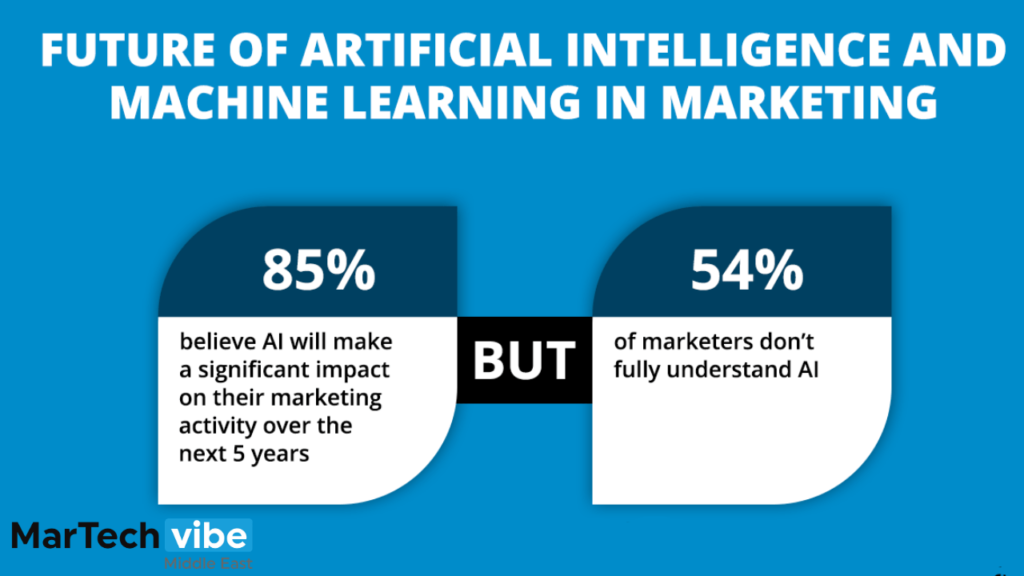
This image is property of pepperyourcontent.com.
Challenges and Ethical Considerations
While the integration of AI in content marketing brings numerous benefits, it also presents challenges and ethical considerations that content marketers must be mindful of. Maintaining authenticity and the human touch in a world increasingly driven by AI is a significant challenge. While AI can assist in content creation, it is crucial to ensure that the content retains a human element that resonates with the audience. Authenticity and relatability are vital for building trust and fostering genuine connections with customers. Content marketers must strike a balance between leveraging AI for efficiency and maintaining a human touch in their content.
Another critical consideration is data security and privacy. As AI tools rely on vast amounts of user data, content marketers must prioritize data protection and comply with relevant privacy regulations. Safeguarding user information and ensuring the responsible use of data is crucial to maintain trust and credibility with the audience. Content marketers must implement robust security measures and establish clear data privacy policies to address these concerns.
Dealing with biased algorithms is also a challenge that content marketers must address. AI algorithms are developed and trained using vast amounts of data, which can introduce biases if not properly addressed. Biased algorithms can negatively impact the quality and fairness of content distribution, potentially leading to skewed representation and discrimination. Content marketers must actively monitor and address biases in AI algorithms to ensure that their content is distributed impartially and reaches a diverse audience.
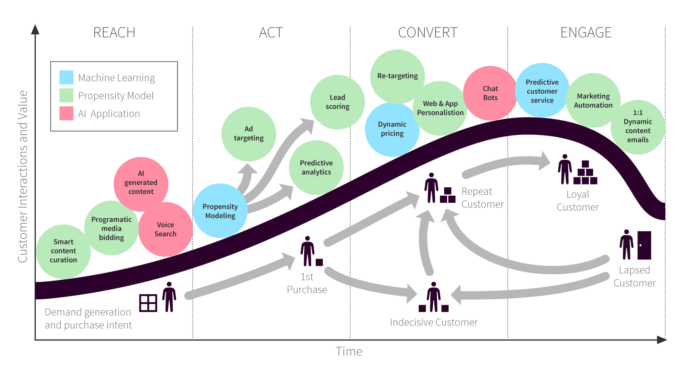
This image is property of www.smartinsights.com.
Adapting to the Changes: Tips for Content Marketers
To adapt to the evolving landscape of AI-powered content marketing, content marketers can follow several tips and best practices:
-
Stay educated on AI technologies: Content marketers should actively stay updated on the latest AI technologies and tools relevant to content marketing. This knowledge equips them to make informed decisions about incorporating AI into their strategies effectively.
-
Collaborate with AI tools, not rely solely: While AI can greatly enhance content marketing efforts, it is important for content marketers to remember that they are in control. Content marketers should collaborate with AI tools as partners rather than fully relying on them. Combining human creativity and insights with AI-powered recommendations leads to more impactful and authentic content.
-
Focus on value-driven and storytelling content: As AI takes over repetitive and data-driven tasks, content marketers should focus on creating value-driven and storytelling content that evokes emotion and connects with their audience on a deeper level. The human touch and emotional resonance are unique aspects of content marketing that AI cannot replicate.
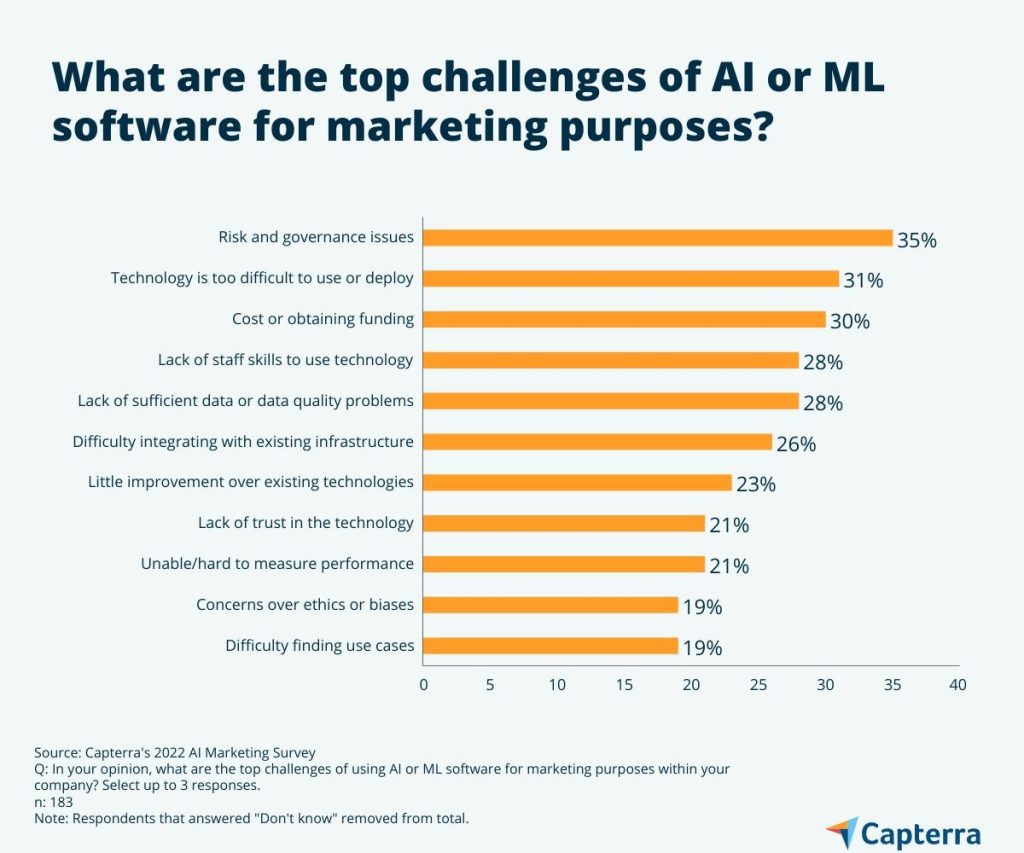
This image is property of images.ctfassets.net.
The Future of Content Marketing with AI
Looking ahead, the future of content marketing with AI holds immense potential. As AI technology continues to advance, we can expect hyper-personalized and contextualized content experiences for consumers. By leveraging AI tools to analyze vast amounts of data, content marketers can tailor their content to individual preferences, interests, and behaviors, creating highly engaging and relevant experiences.
Furthermore, AI will revolutionize user experiences by enabling more seamless interactions. Chatbots, virtual assistants, and other AI-powered technologies will provide users with instant and personalized support, delivering a superior user experience and enhancing customer satisfaction.
Lastly, AI-powered content professionals will emerge as a significant trend in the future of content marketing. AI tools will assist content marketers by automating repetitive tasks, providing data-driven insights, and facilitating collaboration, allowing content professionals to focus on higher-level strategic initiatives and creative endeavors.
In conclusion, the rise of AI in content marketing presents exciting opportunities for content marketers. From AI-powered content creation and strategy to content optimization and distribution, AI is transforming the way marketers approach and execute their campaigns. By embracing AI and adapting to the changes it brings, content marketers can create more impactful, personalized, and engaging content that resonates with their target audience.
